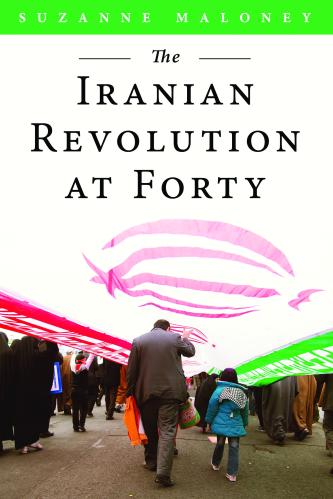Israeli Prime Minister Benjamin Netanyahu’s political maneuverings over the last two years drove many analysts to tear out their hair; in my case, it led me to error, not once but twice. Two years ago and four elections ago, I wrote that “the end [was] nigh for Netanyahu,” but I was wrong. And after Netanyahu seemed to win his fourth consecutive election a month later, I was wrong again when I declared him the ultimate winner (in my defense, Netanyahu himself made the same error). Now, after four elections in two years, four criminal investigations, three indictments, and one trial underway, it looks like I may never have to be wrong about Benjamin Netanyahu again.
Israel’s protracted political crisis may now end, with a new, very broad non-Netanyahu coalition, from the far right to the far left, coming into being this week. If Netanyahu fails to peel off defectors from the right flank of the new coalition, this would indeed be a huge moment in Israeli political history. But policy might be surprisingly stable.
Who’s in this coalition?
The new government would be a national unity government with parties from the hard right, center, left, and, notably, Ra’am, an Islamic party. The coalition will be led by two men, each with a veto: Naftali Bennett, of the Yamina party, and Yair Lapid, the outgoing leader of the opposition who heads the centrist Yesh Atid party. Bennett will serve as prime minister for two years, with Lapid as foreign minister and “alternate prime minister.” If the coalition lasts, Lapid would then become prime minister. But the two would not lead alone. With eight parties, most with just a handful of parliamentary seats, this would be a very “flat” coalition, with just 61 seats of 120, so any constituent party could bring it down.
Bennett was Netanyahu’s aide in the mid-2000s after a successful career in tech, elite military service, and a stint in the leadership of the Yesha Council, a body representing the Israeli settlers in the West Bank (he himself lives in Israel proper). Bennett is the son of American parents, who immigrated from San Francisco and later became modern-Orthodox. Bennett does not fit easily into pre-existing categories. He is very, very hawkish on the Palestinian issue, but unlike some of his colleagues on the far right of Israeli politics, he is genuinely liberal on some other issues. As he will point out, he himself has never made political mileage out of Jewish-Arab tensions in Israel, even while sharing a party for years (until very recently) with Betzalel Smotrich, who traffics regularly in that kind of politics. Yair Ettinger, then a visiting fellow at Brookings, discussed Bennett’s rise amid these competing religious strands in a report we published in 2016: “As a shrewd politician… quick to take advantage of the blurring boundaries of religion, Naftali Bennett aspires to head the national camp waving a flag of non-sectoral patriotism, embracing a wider Jewish public. With the national flag held high, Bennett keeps another religious one, at his side, but its message is general and diluted.”
Bennett presents himself as no-nonsense, straight shooter, committed to effective governance. A can-do entrepreneur, he gained popularity during the COVID-19 pandemic, when he was minister of defense, with an energetic response to the crisis and a willingness to quickly adopt the evolving science-based guidance — even for a crisis ostensibly outside his purview. He would enter the prime minister’s office intent on pursuing this approach — a fast-paced manager, not an ideologue. Nonetheless, he may find that as prime minister, his ideology, and that of his party members, will not be forgotten.
Assuming he takes office (not a done deal yet), Bennett will try to govern on “secular” and generally less contentious issues also because he will have no choice. He will lead a faction of only 6 seats (5% of the Knesset) and he will have burnt bridges with his own base in entering a coalition with the center and the left. Bennett will necessarily share power, in ways Netanyahu never did, with others, most notably Lapid.
Lapid is very different from Bennett. He too is upper-middle-class, but a quintessential Israeli centrist, who speaks of “centrism” not as a default but as an ideological stance. He is a secularist — the son of a firebrand Israeli secularist politician — but he too hopes to move past that label toward a more all-Israeli position. Once derided on the left as lacking any clear positions, he has now emerged as a successful leader of the anti-Netanyahu camp, the mastermind of this unlikely new coalition. By taking the backseat to Bennett in order to oust Netanyahu, he’s defied his old reputation as ego-driven, in favor of one of principled leadership.
Who is not in the coalition? Haredim (or “Ultra-Orthodox”). In 2013, Lapid forced Netanyahu to include Bennett in his government and leave out Haredim, with economic policy that was very tough for Haredim. The finance minister would be Avigdor Lieberman, who has taken up the anti-Haredi mantle from Lapid and even surpassed him. This will be only the third government in the last 40 years to exclude the ultra-Orthodox parties, which in recent years became less independent rent-seekers and more beholden to Netanyahu and the right-wing. Now that they are out in the cold, and their constituents’ crucial financial subsidies threatened, they could be pushed to identify with Netanyahu’s Likud party even further.
Does replacing Netanyahu mean that Israel’s policies toward Palestinians will change?
The new coalition members agree on almost nothing with regard to the Palestinian issue. Bennett has consistently and vehemently opposed a two-state solution both on ideological and security grounds. Bennett was the main contemporary driver of the idea of annexing Area C in the West Bank, which Netanyahu and then-U.S. Ambassador David Friedman were pushing aggressively last year. Bennett called it, without irony, the Stability Plan, which he outlined at Brookings in 2013 and again in a 2017 piece he authored for the British publication Fathom. Lapid is no leftist on the Palestinian issue, but he is very different from Bennett. “Here’s where I differ from the Israeli right and the Israeli left,” he told me in an interview during a February 2021 Brookings conference on the Middle East and the new U.S. administration, “I differ from the… right in my determination to try and have those two states, one next to the other. A very strong Israel and a demilitarized Palestinian state. I differ from the… left because I do not believe unfortunately that this will be the end of the conflict … I believe in my lifetime there will be no end to the conflict unfortunately.” In this dimension, Lapid will be familiar territory for Biden administration, as will Benny Gantz, who will continue as defense minister in the new government (should it pass a confidence vote in the Knesset in the next 10 days).
The new government, in other words, would hope to “freeze” any grand moves on the Palestinian issue for the time being since it could not agree on any — these would include annexation of territory by Israel but also any withdrawal from territory. Of course, the Palestinians themselves, or dynamics on the ground, may “unfreeze” it almost immediately (the Supreme Court is to rule shortly on the eviction of Palestinian families from Jerusalem’s Sheikh Jarrah neighborhood, a key factor in the violence last month.)
What will change?
As foreign minister, Lapid would also strive for a very different approach to American Democrats than that taken by Netanyahu. “I will do much better work in ensuring Israel goes back… to being a bipartisan issue in the United States,” he told me. But his efforts would come at a time when some progressive Democrats have moved way past mere rhetorical issues with Israel. On substance, Prime Minister Bennett’s views could be Foreign Minister Lapid’s biggest diplomatic problem.
More than anything, a new government will try to be just that: a functioning government, on domestic issues first, to return to some governing. It would pass its first budget since 2019. It would invest in domestic programs and focus its energy on the myriad issues that affect the lives of Israelis of all walks of life, even if they make fewer headlines abroad. After years of political turmoil, Israelis might see a bit of “quiet,” for as long as it lasts.
Israel would also have a minister in charge of the police, Omer Bar Lev of the Labor Party, who is both serious and well-intentioned, an excellent change given the prospect of more unrest in Jerusalem. We could expect far less vitriol from the cabinet toward state institutions such as the judiciary and less intentional divisiveness toward minorities.
If the Netanyahu era indeed ends (at least for now), it would be, in other words, a huge moment in Israeli history, even if foreign policy, per se, would not change much at all.










Commentary
After Bibi
June 4, 2021